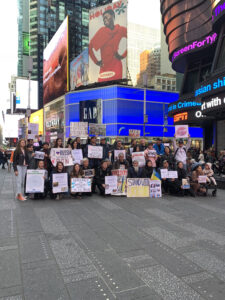Tech Industry Growth is Manifesting in Right-Wing Extremism


The global outpourings of grief, shock, and solidarity were not the only significant outcomes of Christchurch shooting in New Zealand last month. The tragedy also ended the popular conception that radical international terrorism is synonymous with Islamic fundamentalism.
The threat of right-wing terrorism has been on an upward trajectory for the last several years. In 2018, there were over six attacks associated with right wing extremism in the US. Even on a global scale, attacks linked to right wing extremism have far outnumbered radical Islamic terrorism. However, these attacks have mostly been labelled as isolated events perpetrated by people with mental disorders. he fatal shooting of 50 unarmed worshippers in a mosque in Christchurch, however, upended that notion, and the world suddenly woke up to a new threat: one of extreme right-wing terrorism.
The growth of the tech industry can be connected to the growth in right-wing fanaticism. Its tremendous growth has manifested in two key outcomes: automation and social media, which have had a powerful impact on right wing extremism.
Automation has disrupted the manufacturing industry so that people are becoming obsolete. As the tech industry expands further and robots start replacing humans in most job sectors, this trend will grow even more.
The onslaught of automation has created an enormous level of anxiety, and people have started venting their frustrations on social media. However, this confusion and anger has been misdirected towards immigrants; Muslims, in particular, have been the main target of this right-wing anger. Post 9/11 in particular, Muslims have been accused of not just stealing jobs but also of ruining the culture of the host country.
Social media’s ability to send instantaneous messages to large audiences has become a weapon to spread or incite this unfounded fear. The Christchurch shooter live-streaming the entire tragedy was just the tip of the iceberg in unraveling his real motives. He wanted to inspire fear and communicate directly to the people on the other side of his Facebook page. He wanted to send a message to his perceived enemies, supporters and, perhaps most importantly, those who are neither. In other words, he needed an audience and social media provided that.
Social media’s role in fanning right wing extremism is also evidenced in another survey conducted by Warwick University. The survey showed that heavier Facebook usage resulted in more anti-refugee attacks in Germany, a country which has welcomed a large number of Syrian refugees. These show that social media has become the hotbed where hatred, bigotry, and racism are grown.
If we know that social media is the fertile soil where extremism and intolerance grow, why are tech companies not doing anything to combat this? The answer isn’t all that complicated: tech companies are motivated by an insatiable desire to grow, whatever the cost.
Tech has become an integral part of modern life. From the moment you wake up to the alarm on your phone to the moment you fall asleep browsing cat videos on Instagram, tech has become an omnipotent source of power. Does the tech industry have the capacity or the willingness to shoulder the responsibility that comes with such power? Recent studies and reports constantly debate this topic.
A New York Times investigation reported last year that ‘bent on growth’ Facebook executives ‘ignored warning signs’ that Facebook could ‘disrupt elections, broadcast viral propaganda and inspire deadly campaigns of hate around the globe’. Facebook’s rise to two billion users in a relatively short period is a testament to its prioritization of growth and revenue. But growth just for the sake of growth is the ideology of a cancer cell, according to writer and activist Edward Abbey. If the growth isn’t beneficial anymore, the government should step in and regulate the tech industry to create a harmonious society.
One way to do so is by passing far-reaching new regulatory frameworks. Laws aimed at making social media giants more responsible for policing their content—from harassment to terrorist propaganda—is a good beginning. And, according to Democratic Presidential Candidate Andrew Yang, although the race towards automation is not something that can be reversed, incentives like the Universal Basic Income or Freedom Dividend can reduce economic distress.
Whatever the solution is, the fact of the matter is that the tech industry’s automation and social media revolution has spurred this new right-wing extremism. And the tech industry has to shoulder the responsibility to stop this before it destroys even more hopes and lives.
Jamphel Shonu is a graduate student pursuing his Master of Arts in International Relations at New York University’s Graduate School of Arts and Science. He is a recipient of the Fulbright scholarship program.






